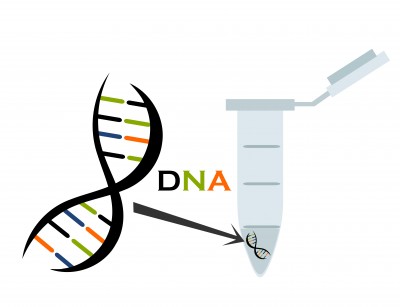This genealogist has the latest news item: President Warren G. Harding had an illegitimate child fathered while he was President of the United States. DNA was used to verify the relationship!
This Record Click genealogist is not surprised by either the illegitimate child or the DNA verification. There have been illegitimate children born for longer than history has been recorded. (And I am still surprised by the number offspring fathered by the Kings of England…) DNA is a tool that should be in every genealogist’s tool box.
As in the case of our President Harding, there is more to DNA than meets the eye. DNA is broken down into three main types:
- Y chromosome DNA
- Mitochondrial DNA
- Autosomal DNA.
Y chromosome DNA is most specific and is found only in men and is inherited along the male line passed down from father to son. Mitochondrial DNA is found in both men and women and is inherited from the female line. Autosomal DNA covers both male and female lines.
It’s all conceptually nifty, but is complicated. A genealogist sometimes needs to look outside the genealogy researcher box to learn how things work. In the case of DNA, the National Institutes of Health website has an online Genetics Home Reference which does a good job of explaining what it is and how it performs.
For a genealogist, analyzing DNA may help determine possible family relationships and members. The thing to remember is that DNA analysis is most accurate on closer, more recent, kinships. It may help identify a parent, sibling, first or second cousin with a great deal of accuracy. In the case of President Harding, the DNA of grandchildren were compared. It was something of a slam dunk and flashy and not that difficult to confirm. As the genealogist looks for DNA relationships that are further back in the family lines, the results become less specific and more general.
On the other hand, the scientists are working with very small bits of material. They study and compare markers. According to the National Institutes of Health (NIH) a marker is:
A DNA sequence with a known physical location on a chromosome. DNA segments close to each other on a chromosome tend to be inherited together.
Many a genealogist will revel in this type of data. For other family history researchers, this will boggle the mind.
When the ability to determine genealogical relationships with DNA begins to fade, the genealogist will still have the geography of genealogy. By comparing numerous individuals, a genealogist may see a migration pattern evolve that details where they lived and to where they migrated.
The next questions that may arise are:
- How valuable is DNA?
- Is it worth the money?
The answer to both: It all depends.
It seems that some descendants of President Harding welcomed these recent DNA results. Others, did not because in addition to verifying the illegitimate child, these results disproved an assumption about the President’s inability to conceive children. This brings up a fact that the genealogist will need to deal with: sometimes there are differences between what we think and what is indicated by research and documentation.
The NIH and the Smithsonian National Museum of Natural History have online articles that may help the genealogist to understand more about DNA in family history research:
- The NIH article is entitled, Genetic Ancestry Testing, and can be found at: ghr.nlm.nih.gov/handbook/testing/ancestrytesting.
- The Smithsonian discussion is, Genome Unlocking Life’s Code,org/explore/our-genomic-journey.
If the decision is made to have a DNA test, there are a number of companies that conduct the various types of tests. A genealogist may want to consider how the information is handled and how readily available the results are. DNA testing should not be used in place of good, old-fashioned genealogical research and footwork. The two can, however, do complement each other nicely.
RecordClick has many genealogists for hire with expertise in DNA testing. We help you decide which test fits your needs, assist in interpreting the results and help you achieve your genealogy research goals.








